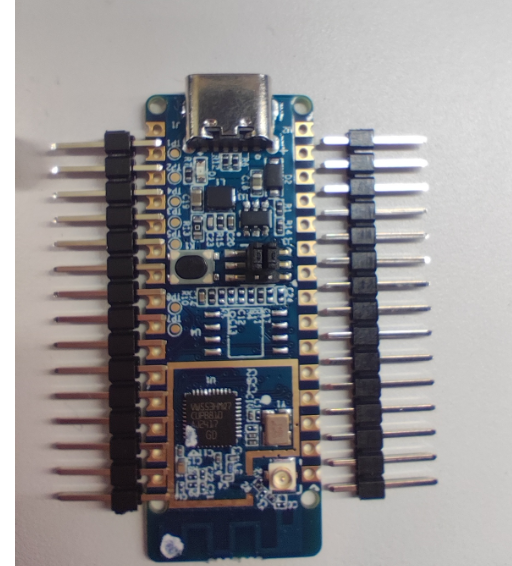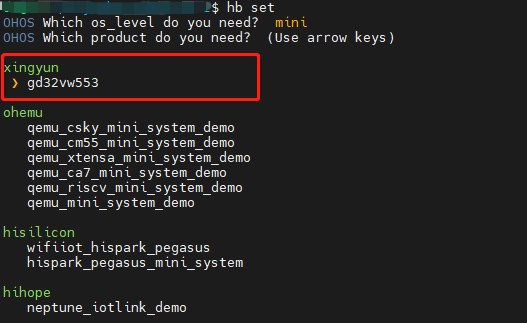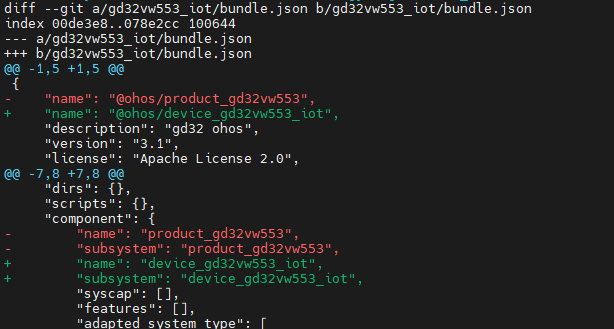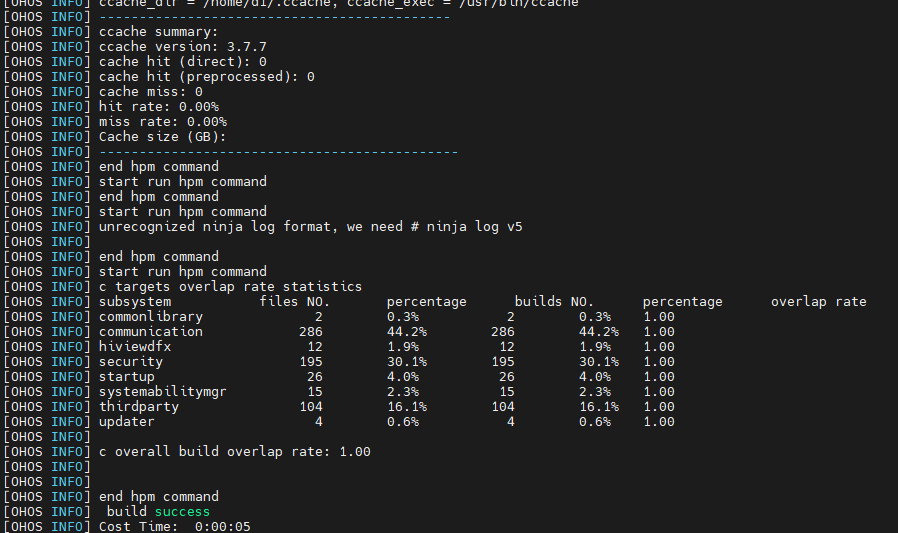想玩openharmony系统已经很久了,但是苦于手上没有合适的开发板可以玩,只能作罢,偶然刷b站的时候,有看到ICEasy商城在搞开发板免费申请的活动,过段进行了申请,然后顺利的拿到了开发板,开发板全貌图如下所示

具体产品介绍可以浏览地址 https://www.iceasy.com/product/1874659379209633793,这里只做简单介绍,具体如下:
320KB RAM + 4MB Flash,支持2.4Ghzwifi6+蓝牙5.2功能,根据openharmony官网的介绍,跑轻量系统的最小配置为128KIB的ram,我们这个开发板那是绰绰有余了。

基于此,我们便开始了我们GD32Vw553-IOT开发板的openharmony的适配之路。
适配步骤开始之前,肯定是先下载ohos相关源码,这里我选用的5.0+的系统,适配多是结合网上案例或者官网亦或者源码进行的,如有错误还望帮忙指正,废话不多说,开始进入正题。
首先我们在ohos的源码vendor目录下创建xingyun/gd32vw553目录,最终全路径则为vendor/xingyun/gd32vw553,接着在这里添加我们需要的文件,我这里直接复制了vendor/hisilicon/hispark_pegasus_mini_system下的config.json文件,然后需要修改对应的文件内容
如下
bash
{
"product_name": "gd32vw553",
"type": "mini",
"version": "3.0",
"ohos_version": "OpenHarmony 3.1",
"device_company": "xingyun",
"device_build_path": "device/board/xingyun/gd32vw553_iot",
"inherit":["productdefine/common/base/mini_system.json"],
"board": "gd32vw553_iot",
"kernel_type": "liteos_m",
"kernel_is_prebuilt": true,
"kernel_version": "",
"subsystems": [
{
"subsystem": "hiviewdfx",
"components": [
{ "component": "hilog_lite" },
{ "component": "hievent_lite" },
{ "component": "hiview_lite" }
]
},
{
"subsystem": "startup",
"components": [
{ "component": "bootstrap_lite" },
{ "component": "init", "features":
[
"init_feature_begetctl_liteos = true"
]
}
]
},
{
"subsystem": "communication",
"components": [
{ "component": "dsoftbus" }
]
},
{
"subsystem": "systemabilitymgr",
"components": [
{ "component": "samgr_lite" }
]
},
{
"subsystem": "security",
"components": [
{ "component": "device_auth" },
{ "component": "huks", "features":
[
"huks_use_lite_storage = true",
"huks_config_file = \"hks_config_lite.h\""
]
}
]
},
{
"subsystem": "commonlibrary",
"components": [
{ "component": "utils_lite",
"features":[ "utils_lite_feature_kal_timer = true" ]
}
]
},
{
"subsystem": "updater",
"components": [
{ "component": "sys_installer_lite" }
]
}
],
"third_party_dir": "//device/soc/hisilicon/hi3861v100/sdk_liteos/third_party",
"product_adapter_dir": "//vendor/hisilicon/hispark_pegasus/hals"
}从上面可以看出,我们需要在ohos的根目录下添加device/board/xingyun/gd32vw553_iot目录,这目录里面需要添加目录liteos_m,然后再在目录中添加config.gni文件,这里可以先复制device/board/hisilicon/hispark_pegasus/liteos_m的文件使用添加好后,我们再从我们可以使用hb set命令测试我们添加的效果

如上图,已经可以看到我们添加的产品了,我们选中回车即可。这个时候我们已经可以使用hb build -f来尝试进行编译了,这个时候进行编译无疑是会报错的,因为我们还没有完成适配工作。我这里直接就报错了如下图

这里是因为我们缺少文件导致,我们需要在vendor/xingyun/gd32vw553目录下添加bundle.json文件,文件内容如下:
bash
{
"name": "@ohos/product_gd32vw553",
"description": "gd32 ohos",
"version": "3.1",
"license": "Apache License 2.0",
"publishAs": "code-segment",
"dirs": {},
"scripts": {},
"component": {
"name": "product_gd32vw553",
"subsystem": "product_gd32vw553",
"syscap": [],
"features": [],
"adapted_system_type": [
"mini",
"small"
],
"rom": "",
"ram": "",
"deps": {
"components": [],
"third_party": []
},
"build": {
"sub_component": [
],
"inner_kits": [],
"test": []
}
}
}接着我们尝试再次编译查看错误是否更新,可以看到错误已经更新如下图。

这里重复上面的步骤,将vendor/xingyun/gd32vw553中的bundle.json复制到device/board/xingyun/gd32vw553_iot目录中,然后修改bundle.json文件,改动如下图所示

改好后我们再次进行编译,就可以看到如下图的成功截图了。

添加开发板到编译框架就算完成了,如果有报错可以参考 https://docs.openharmony.cn/pages/v5.0/zh-cn/device-dev/quick-start/quickstart-pkg-3861-tool.md 地址查看下是否有相关工具没有安装